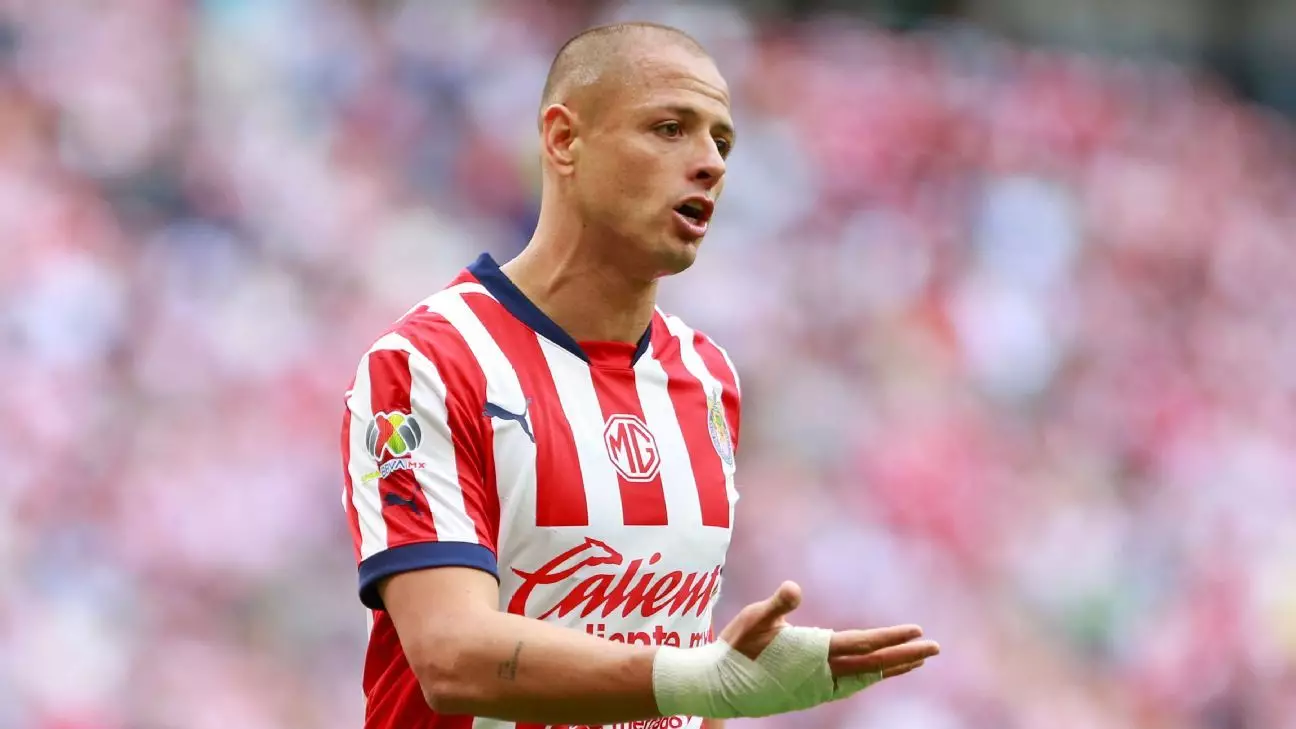In today’s interconnected world, athletes are no longer just sports figures; they are influential voices whose words can ignite waves of controversy or admiration. Javier “Chicharito” Hernández’s recent social media misjudgment exemplifies how quickly a public figure’s reputation can be jeopardized by careless remarks. His sexist comments, which seemed rooted in outdated stereotypes, not only drew swift condemnation but also underscored the responsibility that comes with fame. For prominent sports personalities, the line between personal expression and public influence is increasingly thin, and crossing it can have repercussions that extend far beyond the field.
This incident highlights a profound truth: athletes wield significant social capital, and with it, a moral obligation to promote respect, equality, and constructive dialogue. Chicharito’s choice of words, knowingly or not, perpetuated harmful stereotypes about gender roles, igniting a broader conversation about accountability. While he has issued a contrite statement claiming to learn and grow from the experience, this moment reveals how easily careless words can overshadow a career, especially in an era where social media posts are permanent and dissected by millions.
The Cultural and Political Dimensions of the Backlash
The backlash against Hernández was not merely about offensive comments but about the wider societal implications. The Mexican president’s blunt critique labeled his statements as “very sexist,” not a personal attack but a societal alarm bell. It reveals how deeply rooted these stereotypes remain in many cultures, despite decades of progress toward gender equality. Leaders like President Claudia Sheinbaum demonstrate that public figures are held to a higher standard; their words can either reinforce or challenge prevailing societal norms.
The intervention from the political sphere underscores something critical: sports figures are symbolic representatives of national identity, values, and progression. When someone like Chicharito publicly espouses retrograde views, it does not only hurt individuals but threatens to undo years of societal efforts toward inclusion. The incident pushes us to question whether athletes, revered for their talent and charisma, are adequately prepared to navigate the complex landscape of social issues. It is no longer enough to be a champion on the pitch; modern icons must also champion respect and equality off it.
The Road to Redemption or Reinforcement?
Hernández’s attempt at reconciliation through social media, emphasizing reflection and a commitment to personal growth, should be scrutinized critically. While the gesture of regret is a positive step, it risks being perceived as mere damage control unless accompanied by tangible actions. True accountability involves not only words but meaningful change—such as advocating for gender equality, educating oneself on social issues, and adopting respectful dialogue.
This incident invites a broader reflection on the identities public figures cultivate online. Today’s athletes often position themselves as role models, intentionally or not. Hernández’s misstep highlights the danger of casual remarks that can reinforce prejudice and inspire harmful behaviors among fans. Therefore, it is essential for influencers, especially in sports, to understand their platform’s power and use it responsibly.
Additionally, this episode casts light on the importance of self-awareness. Hernández’s journey—shaped by influences like life coaches and media exposure—illustrates how external factors can shape perception and speech. For athletes striving for authentic growth, continuous self-criticism and a sincere commitment to respectful engagement are vital. Indeed, this controversy might serve as a catalyst—not just for Hernández’s personal development but for the larger sports community to foster environments where respect, humility, and cultural sensitivity are prioritized.
Beyond the Pitch: The Broader Societal Impact
Remarkably, this controversy also reflects a pivotal moment for societal progress. The ongoing fight against sexism is not confined to political debates or academic discourse; it is reflected in everyday conversations, including those provoked by public figures. Athletes like Hernández are in a unique position to influence public perceptions, and their missteps serve as both warnings and opportunities for societal education.
The incident demonstrates that champions are judged on their words and actions, not solely their accomplishments. It underscores a fundamental truth: progress towards equality requires consistent effort. As Hernández faces internal reflection and external scrutiny, society is reminded that change begins with individuals willing to confront their biases and grow beyond them. Whether Hernández truly evolves or remains complacent will influence not only his future reputation but also the cultural momentum surrounding gender respect in Latin America and beyond.
Ultimately, this controversy exemplifies the delicate balance public figures must maintain: leveraging their influence responsibly while acknowledging their flaws. Hernández’s case provokes us to reevaluate how athletes and leaders are held accountable and how they can, through sincere effort, contribute meaningfully to social progress rather than undermine it.


Leave a Reply